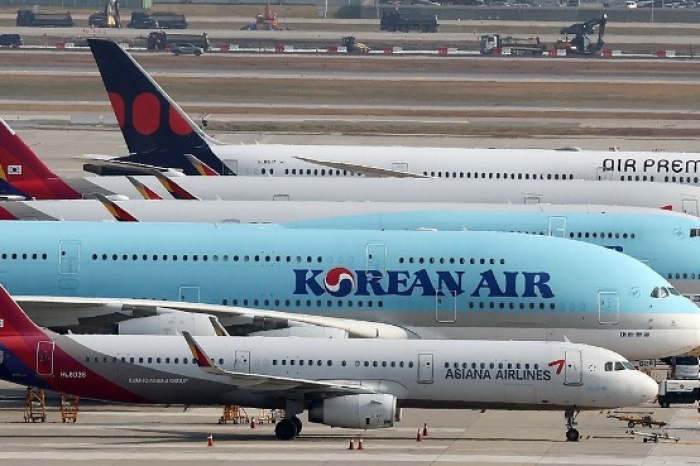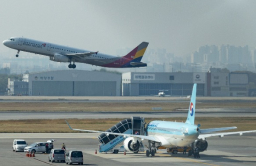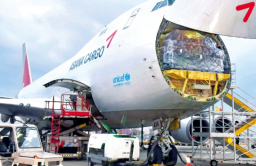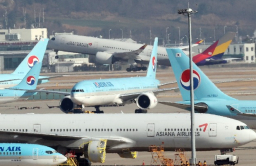-
KOSPI 2577.27 -2.21 -0.09%
-
KOSDAQ 722.52 -7.07 -0.97%
-
KOSPI200 341.49 +0.02 +0.01%
-
USD/KRW 1396 -2.00 0.14%
Korean Air gets EU approval for Asiana merger
Airlines
Korean Air gets EU approval for Asiana merger
Korean Air will be the mega full-service carrier operating 226 aircraft and serving 186 cities
By
Nov 29, 2024 (Gmt+09:00)
2
Min read
News+

The European Commission (EC), the European Union (EU) antitrust body, approved the merger between Korean Air Lines Co. and Asiana Airlines Inc. on November 28.
EC said it had concluded its review after confirming Korean Air’s fulfillment of all required conditions for the merger with Asiana Airlines.
In May last year, EC suggested two key requirements: reducing competition in the provision of passenger transport services on four routes between South Korea and France, Germany, Italy, and Spain and selling Asiana's provision of cargo transport business.
Korean Air has designated T’way Air as the remedy carrier for the European routes, with commitments to provide operational support including aircraft, flight crew, and maintenance services.
The South Korean largest full-service carrier (FSC) has tapped Air Incheon, a local airline dedicated to cargo business, as the preferred bidder to acquire all stake in Asiana Airlines Inc.’s cargo unit for around 500 billion won ($361.8 million).
Korean Air has submitted the EC’s final approval to the US Department of Justice (DOJ) and plans to complete the transaction by December.
The airline industry experts predict that the US is likely to follow suit without further review, as the DOJ typically intervenes only in cases of potential monopoly concerns.
The merged airline will operate as a mega-carrier, generating an annual revenue of 21 trillion won ($15.0 billion), with 226 aircraft and a workforce of 27,000.
The company will also oversee low-cost carriers (LCCs) Jin Air, Air Busan Co., and Air Seoul.
After the merger with Asiana, Korean Air will expand its network to 186 cities worldwide.
Based on the International Air Transport Association’s (IATA) 2019 rankings, the merged airline is expected to surpass Japan Airlines and secure 11th place globally for international passenger kilometers.
In November 2020, Korea Air agreed to buy financially-strapped Asiana for 1.8 trillion won ($1.3 billion) and initially planned to complete the acquisition by the end of the first half of 2021 and launch the merged entity in 2022.
Korean Air aims to complete all merger-related procedures within the year.
By December 20, it plans to pay the remaining 800 billion won of the 1.5 trillion won acquisition cost—excluding 300 billion won in perpetual bonds—and integrate Asiana as a subsidiary.
Once this is completed, Korean Air's stake will increase to 63.88%.
Write to Jae-Fu Kim at hu@hankyung.com
More To Read
-
Jun 03, 2024 (Gmt+09:00)
-
 Mergers & AcquisitionsAsiana Airlines to sell cargo business for merger with Korean Air
Mergers & AcquisitionsAsiana Airlines to sell cargo business for merger with Korean AirNov 02, 2023 (Gmt+09:00)
-
 Mergers & AcquisitionsKorean Air may give up Asiana’s cargo business, 4 routes for EU approval
Mergers & AcquisitionsKorean Air may give up Asiana’s cargo business, 4 routes for EU approvalSep 25, 2023 (Gmt+09:00)



